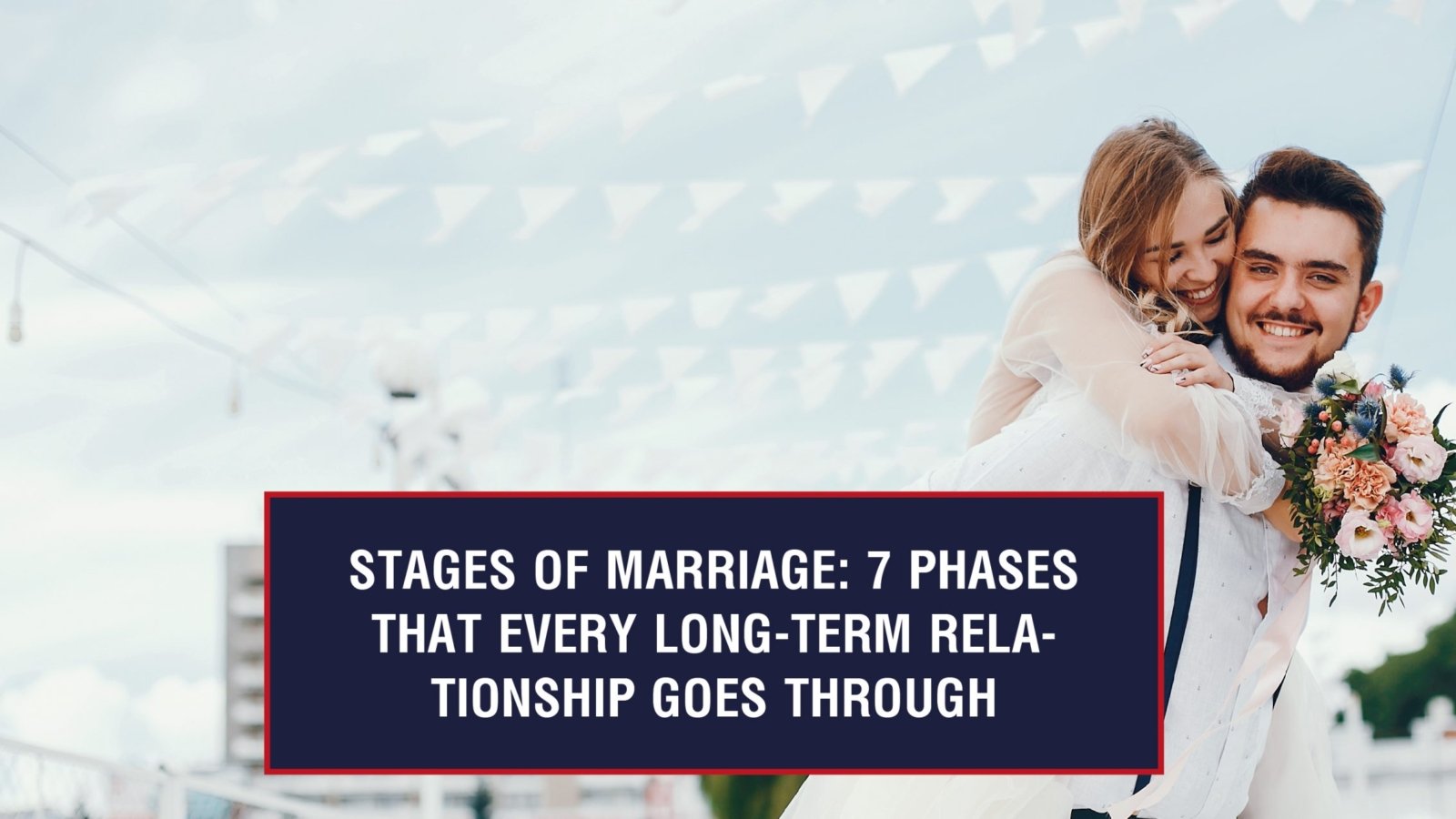Do you know what the stages of marriage are? Today I want to talk to you about this topic, which I think is fundamental to understanding the dynamics of long-term relationships. Although it is true that each couple is unique, most of them go through a series of distinct stages.
When two people get married they usually make the decision from the position of mutual illusion, which belongs to one of the first phases. But what happens later, when they live together, children arrive or a difficult situation arises?
On different occasions I have heard in my consultations questions like “Is love over, Dr. Duany?” I must tell you that it is not. It is not that love is over. The confusion lies in the fact that you do not know well the reality of love as a couple. Love is in constant movement. Everything depends on how you and your partner live and overcome the different stages of your union.
Stages of marriage: relationships go through these 7 stages
There are several theories that try to explain the stages of marriage. However, in this article I want to base myself on the 5 stages described by Jed Diamond, American psychologist, and add two more stages that I have discovered in my journey as a therapist accompanying couples.
1. “Honeymoon” or “falling in love” phase
This is the stage in which both idealize each other, there are no defects and the only thing they manage to see are the good and wonderful things they share. They want to be together all the time, avoid arguments and even have intense sexual activity. In this phase it is as if they were still in courtship.
According to psychologist Jed Diamond, at this stage large amounts of endorphins are released in the brain, so the couple can feel great happiness.
This is also explained by Dr. Cindy Hazan, a professor at Cornell University, who revealed that humans can feel passionate for 18 to 30 months. After studying more than 5,000 people, she discovered that the life span of the falling in love phase was long enough. At the end of this “initial euphoria” stage, many people doubted whether they were still in love.
2. Knowledge
I often tell people that this phase is the time when they “take the blindfold off”. The couple gets to know each other better and establishes a solid friendship within the marriage. If in the previous stage the defects were not seen, in this phase they can be seen clearly.
3. Internal crises and disappointment
This is one of the most difficult stages of marriage to overcome. The couples that manage to overcome this phase are the ones that last the longest, says psychologist Jed Diamond. I often hear in my consultations, Dr. Duany, ¿Did the man or woman I fell in love with change?
Although in phase two some defects are already visible, the couple is still able to ignore most of them. However, in the third stage, these imperfections become practically intolerable. So, if you are in this stage, your biggest challenge will be to define whether you love your partner enough to accept him/her as he/she is.
4. Overcoming internal crises and negotiation
After passing phase three and overcoming the crisis, idealizations are left behind and now a more realistic and stable relationship begins to be built. In the fourth stage, agreements, negotiations and the planning of common projects emerge.
It is possible that during this time, children may arrive (if they have not arrived during the previous stages) and the creation of joint businesses or other types of projects involving economic matters.
5. Arrival of external crises
Unlike stage three, in which internal crises arise, in this stage the crises are produced by external circumstances. They are situations that come unexpectedly and cannot be controlled. If these crises are not managed correctly, they can negatively affect the marriage. Some of these situations can be:
- The illness of one of the members of the relationship or of the children.
- Becoming unemployed.
- The death of a relative or close friend.
- Change of country or city.
- Changes at work.
As a therapist I assure you that, if each of you as a couple decides to face any external crisis as an opportunity, instead of looking at it as a threat, your marriage will emerge stronger from this phase.
6. Empty nest syndrome
The children have left home and the couple is left at home alone. Although it is a necessary evolutionary stage, the couple does not always manage to cope with this new situation. In some marriages it can trigger the well-known “empty nest”.
However, this can be a phase to strengthen ties with your partner. As explained by psychologist Sonia Castro of the European Institute of Positive Psychology, one of the ways to improve this situation is to focus on the relationship, improve communication and return to those early stages of falling in love.
7. Deep connection and transcendence
After having lived together for years and having overcome the different stages, there comes a phase of tranquility, of absolute connection between you and your partner. Psychologist Silvia Sanz, an expert in marriages, explains that if you have reached this stage, you have forged a mature love. Intimacy is strengthened, common spaces are sought and you have learned to live even with discrepancies.
Have you been able to figure out what stage your marriage is in? Understanding which characteristics, challenges and work needed at each stage can help you handle the difficult times better and more wisely.
If you have been able to identify the stage your relationship is going through and need help, or if you have doubts about the stages of marriage, contact me. You can call me at this number 407 618 0212 and I will be happy to help you.


